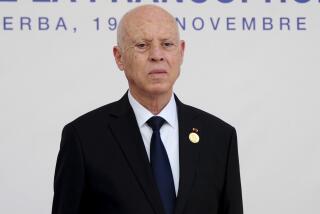Lagarde welcomes measures but calls for more inclusive policies in Kazakhstan
IMF Managing Director Christine Lagarde on Tuesday said that while the outlook for robust economic growth in Kazakhstan remains bleak due to low oil prices, the Central Asian nation is well positioned to bounce back thanks to “appropriate” measures taken by the government of President Nursultan Nazarbayev.
Lagarde said she didn’t expect growth to pick up soon, but noted that authorities made the right move by allowing the tenge currency to float and by strengthening the monetary and exchange rate policy framework to create new opportunities for exporters and for producers of goods and services.
“We think all these measures were appropriate,” she said.
“With stronger policy frameworks, more transparent institutions, greater openness, and more inclusive policies, Kazakhstan can set in motion a virtuous circle of policies to achieve growth that is sustainable, diversified, and inclusive,” Lagarde said.
The Kazakh economy is forecast to grow by only 0.1 percent this year compared to an average growth rate of 7.5 percent over the past 15 years.
The head of the International Monetary Fund was in Astana to attend the IMF Regional Conference, which aims to create debate among Central Asian countries about how to deal with economic challenges and successfully guide the region to growth.
Lagarde described Kazakhstan as a country with a “promising future” as a major oil exporter strategically located between Europe and China.
“Some would say that Central Asia faces a predicament because it is landlocked. I would say it is blessed with systemic and dynamic neighbors on all sides: China and Russia on one side, Europe, India and South Asia on the other,” she said.
If the region is to become the main artery of the “One Road, One Belt” initiative as planned, it needs to deepen integration both internally and globally, she added.
“Kazakhstan’s recent accession to the WTO (World Trade Organization) is an important step in this direction. By some estimates, accession would translate into gains of about 3.7 percent of GDP in the medium term and close to 10 percent in the long run,” she explained.
The IMF chief said Kazakhstan needs to find ways to diversify away from oil as the prime source of national income, and warned that the government might have to cut some budget items to provide more resources for social spending and job creation.
She said diversification would include “making the business environment and the economy more competitive, more integrated regionally and globally, and more open and inclusive.”
“We know that there is considerable interest in Kazakhstan as a ‘bridge’ between Europe and Asia,” she said.
Earlier Tuesday, Lagarde met with President Nazarbayev to discuss IMF recommendations and cooperation, according to the president’s press service.
“The experts of the Fund provided us with great technical and financial assistance. Kazakhstan’s economy is going through an uneasy period due to several factors. For six years, our republic has been implementing measures to lower our dependence on raw materials,” Nazarbayev said.
The visit of the IMF managing director coincides with the opening Wednesday of the Astana Economic Forum, an annual platform held in the Kazakh capital for international dialogue and debate on economic development.






